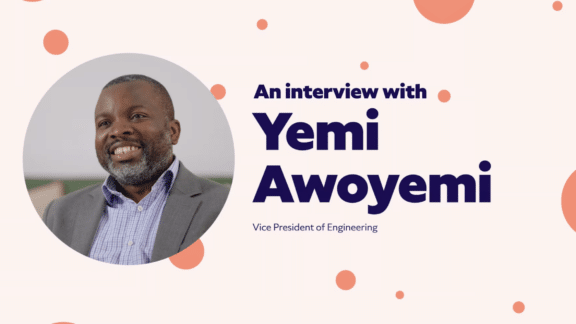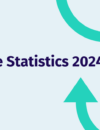Yemi is Director of Engineering at Thriva Health; he’s a client of Druthers. He has over 10 years of experience in leading and growing engineering teams across various domains and technologies. His mission is to build high-performing teams that deliver high-quality products and a strong engineering culture that promotes teamwork, accountability, quality, and innovation. He’s previously scaled teams from 10 to 90 people and he’s passionate about delivering business objectives that drive value for customers.
Could you tell us a little more about your experience of working with Druthers?
I first came across Druthers when I was applying for a role at Thriva, two and a half years ago now I think and my first contact was with Kirsty. What was great with the experience was the preparation in terms of that initial interview, the questions being asked, the prompts as well because sometimes as a candidate, a lot of things are in your head and you don’t really know how to get it out there. So the little prompts here and there are to actually create a profile for myself that I think was very helpful. And then during the actual process itself, because it was always giving me feedback or asking how it went. Then we talk through each of the stages, I believe it was three in the end. There was little bit of coaching as well was part of that. And I remember, actually one of the key stages was talking to the product managers. And what had happened there was I’d given an answer that afterwards thought, nah, that’s not right. And I contacted them immediately, I said, look, this is what I think has happened and is that I’m not sure what can be done, but I think I didn’t answer that the right way. What was really great to see though was we had further conversations. I think I’m assuming she reached out and said, oh, this is what’s happened. And in the end, I didn’t get the job, but you can see the benefit of working with someone who actually understands the role that they were putting out.
And I would say the diversity piece as well shouldn’t be overlooked because you might not have thought of it in that way, but that coaching helps someone from a different background to think through exactly what is, you can’t just go through an interview as a normal interview. It doesn’t work that way unfortunately. So getting that coaching, knowing what people are looking for help. I more recently had a conversation with Kiri, so I’ve seen both sides I think it’s similar. I can’t sing their praises high enough. Kiri, I remember was sending me notes ahead of my interviews and, although I wasn’t successful there, I knew what to prepare for, I think I thought I’d prepared as well as I could, but obviously in this case it wasn’t a match. But I would really advise anyone to work with your team.
What commonalities do you see in underperforming organisations which you would want to change?
Some we already talked about in our roundtable, but I’ll start the first with one I feel is alignment on goals. I think there’s some literature that says that if you ask people at my level sometimes for the companies that are underperforming, most of people in my role will probably not know what the strategy is. So if you don’t know what the strategy is, how do you cascade that information or what needs to be done down to the rest of your teams? Of course there will be confusion. So I would say top thing is get everybody aligned to whatever your business strategy is, then align them to the product strategy, then align them to be the technical strategy or whatever the next cascading aspect of it is. And that alignment really mean communicate and over communicate and just keep doing it. And where you can just try and refine and continue to be clear, around what that looks like.
Then the other side is the diversity question, I think I suspect that there are even in the bigger companies where they’re making billions of money, there will be pockets in there where they’re not performing and it could just be because it’s the invoices or the same ways of thinking. So I think those two things do matter. So there’s the, what’s the strategy? Are we aligned? And then there’s the do we all look the same or do we have the same way of thinking and is there a way to break that chain so that we can bring different ways of thinking into, into those conversations?






